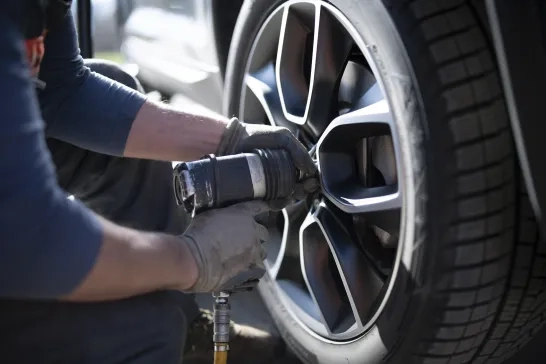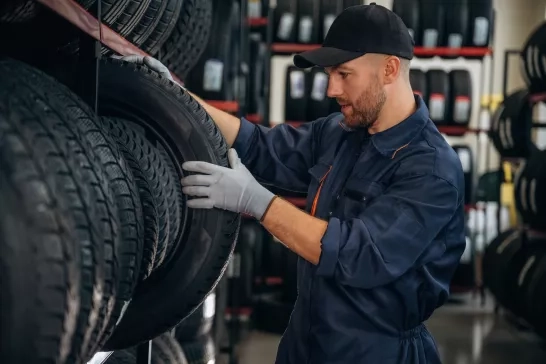
8 Silent car battery killers
3 Minute Read
Modern vehicles offer drivers a wide array of onboard accessories and entertainment, from multimedia players and Bluetooth connectivity to backup cameras, GPS navigation, and seats that can be heated or cooled! These items draw power from the car battery. However, the battery is continuously charged by the vehicle’s alternator when driving. On the other hand, the battery stops recharging once the engine is turned off. Vehicle accessories that draw power from the battery, even when the engine isn’t running, create a parasitic drain, which shortens the life of your battery.
Take care to avoid these eight silent car battery killers:
Headlights left on
While many modern vehicles automatically turn the headlights off after turning off the ignition, some cars still don't have this helpful feature. As a result, a fully charged battery can be completely drained of power in just one to two hours if the lights are left on when the engine is powered down.
Interior lights left on
When an interior light is left on after the engine is turned off, the battery is slowly drained of power. This frequently happens when a door is not fully closed, the glove box or vanity mirror is left open, the trunk is not completely shut, or the reading lights are not turned off just before exiting the vehicle.
Accessory socket plug-ins
The accessory socket (i.e., cigarette lighter) is a handy spot to plug in phone chargers, radar detectors, air fresheners, dash cams, and other gadgets. The 12-volt outlet is powered by the car battery, even when the ignition is off. If an accessory remains plugged in with the engine off, it continues to draw current from the battery, gradually depleting its ability to start your car.
Key fob
Modern vehicles are opened with the click of a button using a key fob. Some cars even detect when the fob is near, allowing the driver to simply touch the handle to open the door. When the key fob is close by, a receiver inside the vehicle wakes up to wait for instructions (e.g., lock or unlock the car, start the engine, open the trunk, etc.) If you leave the fob within 15 feet of your vehicle, the receiver remains engaged as it waits for your command, slowly discharging the battery.
Extreme hot or cold temperatures
Sweltering summer heat and frigid winter chill are tough on car batteries. Extreme weather can weaken the battery and diminish its performance. In summer, high temperatures can evaporate the battery’s internal liquids, causing its charge to dwindle. Parking in a garage, in the shade, or using a car cover helps deflect the heat and shield your battery from the dog days of summer. In winter, freezing weather slows down the chemical reactions inside the battery, weakening its power. Protect your battery from the cold by parking in a garage, under a covered area, or purchasing a battery blanket with thermal insulation.
Corrosion
Have you ever seen a powdery white, blue, or green substance on your battery terminals? Batteries contain a combination of chemicals that work to power your battery. When the gas or liquid from these chemicals comes in contact with the metal battery posts, a reaction creates powdery corrosion. This build-up of chemical waste can drain the power out of your battery and shorten its life, so it's important to remove it as soon as you see it.
Aftermarket car stereos
Car stereos installed by the automaker typically will not drain your battery; however, if you have an aftermarket stereo system, the larger and more powerful the system, the greater the potential for battery drain. Sometimes, aftermarket stereos are installed in a way that the wiring causes the system to continue to draw power even when the car is not in use, resulting in a dead battery.
Car alarms
Like stereos, car alarms installed by the automakers generally don’t cause trouble, but aftermarket car alarms are a different story. If installed incorrectly, they can cause a significant drain on your battery.
Car batteries have a three-to-five-year lifespan when driven under normal circumstances. However, if you think your battery is reaching the end of its lifespan, you can pre-book a battery test using CAA's Mobile Battery Service. Or, if your battery has died unexpectedly, CAA is here to help 24/7. Download the CAA Mobile App and place a service request, or call 1-800-CAA-HELP (1-800-222-4357). We'll send a trained Technician to solve your problem and get you back on your way.




